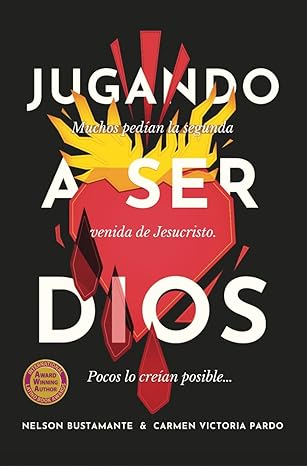
Professional Book Translation
At Translinguo Global, we are an official translation agency specialising in book translation and literary translation. We have a team of native translators who specialise in literature and adapting texts for different formats, such as physical books, digital books and ePubs. We also offer book layout services to ensure that the presentation and design are impeccable.
In addition, we have specialists in book layout design, ensuring that the design and structure of your work remain impeccable in formats such as PDF, Word, InDesign, or EPUB. If you need to translate a book or adapt a manuscript into different languages, at Translinguo Global we offer customised solutions tailored to each project.
Native translators specialising in literature
Our team of translators has experience in fiction, poetry, essays, and technical texts.
Cultural and linguistic adaptation
We maintain the essence of the original text, adapting the style to the target market.
Professional layout design
We guarantee that the design and format of the book will be impeccable in any language.
Compatibility with different platforms
We work with formats such as PDF, Word, InDesign, and ePub.
Professional Book Translation
Book translation requires a combination of linguistic precision, literary knowledge and cultural sensitivity. Translating a book involves not only conveying the original message, but also adapting the tone and narrative structure to the target market.
At Translinguo Global, we offer a comprehensive literary translation and digital book translation service that guarantees fidelity to the original content and adaptation to the cultural and linguistic norms of each country.
Our book translation process includes a thorough review by specialised editors and proofreaders to ensure that the final content is consistent and accurate.
Types of Book Translation
At Translinguo Global, we offer a range of book translation services tailored to the needs of each author and publisher. Not all books require the same treatment, so we adapt our process according to the genre and purpose of the text.
Book translation involves not only converting the text from one language to another, but also maintaining the author’s tone, style and intent in the target language. Furthermore, it is crucial that the translation reflects the cultural references, narrative structure and linguistic peculiarities of each market.
Translation of Literary Books
Translating literary works involves maintaining the tone, style, and cultural references of the original text. We specialise in: Novels, Poetry, Short stories, Plays, and Essays.
Our translators specialising in literature ensure that the narrative and rhythm of the original text remain intact in the translated version.
Translation of Self-Published Books
If you are an independent author, we offer a comprehensive book translation and layout service so that you can launch your work in multiple languages with professional quality. Literary translation service tailored to our clients so they can take their work to the next level.
Translation of Digital Books (EPUB, PDF, Word, InDesign)
We adapt your work to the main digital formats to ensure that the text reads clearly and professionally on platforms such as Amazon Kindle, Apple Books, Kobo, and Google Play Books. Our translators and designers are trained to work with advanced book layout tools in InDesign, Word, and EPUB.
Translation of Non-Fiction Books
Non-fiction books have a more direct and explanatory approach. We adapt the content to the logical and cultural structure of the target language. Our book translators specialise in translating biographies, memoirs, self-help books, history books and travel books.
Technical and Scientific Book Translation
The translation of technical and scientific books requires great terminological precision and in-depth knowledge of the subject matter. We translate books on: medicine, engineering, technology, economics and law. We use specific glossaries and computer-assisted translation tools to ensure the consistency and accuracy of each technical term.
Our Book Translation Clients

Jugando a ser Dios/ Playing God
Nelson Bustamante (Author) y Carmen Victoria Pardo (Author)

Innovating among elephants
Guillermo Suárez-Valdés (Author)

The Weight of Fearsome Things
K.D. Field (Author)

Juguetes Rotos: 178 (Theater)
Carolina Román (Author)

Now You're Home!
Antonio Gómez Martín (Author)

Now You're Home!
Nelson Bustamante (Author) y Carmen Victoria Pardo (Author)
At Translinguo Global, we work with a wide variety of clients who require book translation services:
- Publishers seeking to expand their titles into international markets.
- Independent authors who wish to self-publish their works in other languages.
- Academic organisations that need to translate manuals and technical texts.
- Communication agencies that require translations of magazines, reports, and corporate publications.
Whether you are an author looking to expand your work or a publisher needing to publish in different languages, at Translinguo Global we have the experience and resources to help you.
Book Translation Agency
At Translinguo Global, we have a team of native translators who specialise in book translation and literary translation. Our quality process is backed by our certifications:
✅ ISO 17100: Guarantees the quality of our translation processes.
✅ ISO 90001: Ensures quality in the management of our projects.
✅ ISO 182587: Recognises excellence in the localisation and adaptation of literary and academic texts.
In addition, our professionals are trained in the use of advanced tools for book layout in formats such as PDF, Word, InDesign, and EPUB, ensuring a professional presentation in every publication.

Why choose Translinguo Global for your book translation:
Native translators
Precise technical and cultural adaptation.
Free quote in less than 24 hours.
ISO Quality Certificates
Book Translation Quote: Fast and Personalised
The cost of translating books depends on several factors, such as: number of words, literary genre, target language, format (Word, PDF, InDesign, ePub) and additional layout services.
At Translinguo Global, a translation company, we offer personalised quotes in less than 24 hours, with no obligation and tailored to the needs of each project.
Book Translation (FAQs)
How much does it cost to translate a book?
The price of book translation can vary depending on several key factors:
- Text length: The number of words is one of the main factors determining the cost of a translation. A 50,000-word book will cost differently than a 100,000-word novel.
- Target language: Some languages are more complex to translate due to cultural and linguistic differences. For example, translating a book from Spanish into English may be less expensive than translating it into Chinese or Arabic, due to the availability of translators and linguistic complexity.
- Type of content: Translating a work of fiction is usually less expensive than translating a technical or scientific book, as the latter requires specialised knowledge of the field.
- Format: Translating a book into PDF or EPUB format may require additional adaptation to ensure that the text and layout remain intact after translation.
- Additional services: If the project includes additional services such as editorial review, layout or design adaptation, the cost may also increase.
At Translinguo Global, we offer personalised quotes based on the client’s needs and the type of book. We guarantee transparency in our prices and are committed to delivering a professional translation with the best value for money.
📩 Request your free quote today and receive a response within 24 hours.
Can you translate self-edited or self-published books?
Yes, at Translinguo Global we have experience working with independent authors and self-publishing platforms such as Amazon KDP and Google Play Books.
If you are an independent author looking to expand the reach of your work to other markets, our book translation service includes:
- Complete translation of the text.
- Adaptation of cultural references and idiomatic expressions.
- Adjusting the tone and style so that the text maintains the same quality and naturalness in the target language.
- Professional layout in formats such as EPUB, PDF, or InDesign so that the book complies with self-publishing platform standards.
- Editorial review to ensure that the content is error-free and stylistically consistent.
In addition, we ensure that the book’s design remains intact after translation, respecting the original format and adapting it to the technical characteristics of each platform.
If you wish to launch your book in several international markets, Translinguo Global provides a comprehensive service to ensure your work is successful in any language.
What book formats can you translate?
At Translinguo Global, we work with a wide variety of book formats to ensure that the translated text remains faithful to the original design and structure. Some of the book formats we translate include:
- PDF: We maintain the original structure and layout of the document after translation.
- Word (.doc, .docx): Ideal for books in the process of editing or creation.
- InDesign (.indd): We adapt the translation directly into the design template so that the book retains its professional style.
- EPUB: We adapt content to digital book format standards for platforms such as Amazon Kindle, Apple Books, and Kobo.
- TXT: Direct translation of plain text, ideal for technical documents or drafts.
If you require a specific format or have a complex design, our team of designers and translators will work to maintain the quality and original design in any language.
How long does it take to translate a book?
The time required to complete a book translation depends on several factors:
✅ Book length: A short book of 20,000 words can be translated in 1 to 2 weeks, while a 100,000-word novel may require 4 to 6 weeks for an accurate, high-quality translation.
✅ Text complexity: Translating a technical or scientific book may take longer than translating a work of fiction due to the complexity of the terminology and content.
✅ Number of languages: If the book is to be translated into several languages, the translation process will be extended to ensure accurate adaptation in each language.
✅ Additional services: If the project includes editorial review, style correction, or layout, the process may take an additional 1 to 2 weeks.
At Translinguo Global, we are committed to meeting agreed deadlines and offer an urgent translation service if you need your book translated in a short time frame.
What is the difference between literary translation and technical translation of books?
Although both involve the translation of a book, there are fundamental differences between literary translation and technical translation:
Literary translation:
- It focuses on maintaining the narrative style and emotions of the original text.
- Cultural adaptation is key to ensuring that readers perceive the text as natural in their language.
- Example: novels, poetry, essays, fiction books, and autobiographies.
Technical translation:
- It focuses on the terminological and technical accuracy of the content.
- Consistency and the use of specific terms are essential.
- Example: manuals, academic books, scientific texts, and professional guides.
At Translinguo Global, we have translators who specialise in both types of translation to ensure that the content is correctly adapted to the reader’s needs.
What certifications guarantee the quality of book translations?
Yes, in addition to translating content, we offer a comprehensive book layout service.
- We adapt the format and design to the typographical and cultural norms of each language.
- We guarantee that the translated text will fit correctly into the original layout.
- We work with InDesign, PDF, EPUB, and other digital formats.
Our team of designers and translators work together to ensure a professional and consistent result in all languages.
In which languages can you translate books?
At Translinguo Global, we translate books into more than 50 languages, including:
If you wish to launch your book in several international markets, we will adapt the content to each language, ensuring that the translation respects the cultural and linguistic particularities of each market.
Can you translate and layout books in different languages?
Yes, in addition to translating content, we offer a comprehensive book layout service.
- We adapt the format and design to the typographical and cultural norms of each language.
- We guarantee that the translated text will fit correctly into the original layout.
- We work with InDesign, PDF, EPUB, and other digital formats.
Our team of designers and translators work together to ensure a professional and consistent result in all languages.

